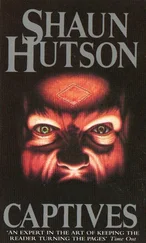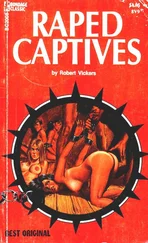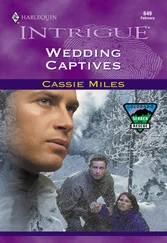Norman Manea - Captives
Здесь есть возможность читать онлайн «Norman Manea - Captives» весь текст электронной книги совершенно бесплатно (целиком полную версию без сокращений). В некоторых случаях можно слушать аудио, скачать через торрент в формате fb2 и присутствует краткое содержание. Год выпуска: 2014, Издательство: New Directions, Жанр: Современная проза, на английском языке. Описание произведения, (предисловие) а так же отзывы посетителей доступны на портале библиотеки ЛибКат.
- Название:Captives
- Автор:
- Издательство:New Directions
- Жанр:
- Год:2014
- ISBN:нет данных
- Рейтинг книги:3 / 5. Голосов: 1
-
Избранное:Добавить в избранное
- Отзывы:
-
Ваша оценка:
- 60
- 1
- 2
- 3
- 4
- 5
Captives: краткое содержание, описание и аннотация
Предлагаем к чтению аннотацию, описание, краткое содержание или предисловие (зависит от того, что написал сам автор книги «Captives»). Если вы не нашли необходимую информацию о книге — напишите в комментариях, мы постараемся отыскать её.
Captives
This is a moving account of a country shaken by communism and anti-Semitism and haunted by recent atrocities, from "a distinguished writer whose vision of totalitarianism is close to Kafka's cloudy menace, universal yet internalized" (Richard Eder,
).
Captives — читать онлайн бесплатно полную книгу (весь текст) целиком
Ниже представлен текст книги, разбитый по страницам. Система сохранения места последней прочитанной страницы, позволяет с удобством читать онлайн бесплатно книгу «Captives», без необходимости каждый раз заново искать на чём Вы остановились. Поставьте закладку, и сможете в любой момент перейти на страницу, на которой закончили чтение.
Интервал:
Закладка:
— From Giurgiu, I answered.
He nodded his head as if he knew. When Mama went into the kitchen to bring the second course, he told me that there had been an accident at the mine. The accident had happened because the majority of the workers were new and unprepared for such work. I asked him why. He told me that most of them had been relocated from other parts of the country: they were part of the former exploiting class that needed to be liquidated. The class, not the people, he added, but Mama had just returned with the dishes.
Goes to show: it’s good to get home on time for lunch and eat with the family. I no longer had to visit any salt mine. I’d have to visit classmate Caba during every break to decide where he belonged. My duty was to divide people according to strict criteria. That simplified things: love to the left, hate to the right. I had the right to use cunning when necessary so that the guilty would cast off their concealments and repent. The goal was an exhibition of warrior virtue, a spectacle worthy of both the masses and those in power.
Preparing his tirades, the coward in me entered a state of jubilation.
• • •
Professor Laurenţiu Sofronie was a worn-out old crocodile. During his lessons, we often found ourselves forced to listen to his youthful adventures on the streets and in the libraries of Paris. His voice and eyelids would begin to tremble, and we knew he was about to digress, once again, into some speech praising “the true humanism.” He would glorify the “exemplary discipline and honor” in the camps of the Romanian monarchy’s “young guards,” the rightist movement of his youth. His reek of a desecrated corpse, the smile he used to close his “allocutions,” and his never failing “dear children, you must learn what life is. .” would have nauseated us if the combination hadn’t boiled down to a tremendous waste of time. Paris had of course been hospitable to this landowner’s son, accustomed from the time of his school vacations to the delights of “honor” practiced in the camps of the monarchial guards.
The old reactionary’s trap would have to be shut. At home, however, I didn’t have the courage to talk about what was going on in anatomy class. That would have forced me to admit to my parents’ horrified supposition, that I was “capable of anything” right now.
Virgil Mehedinţi, the councilor, would have been astonished that I hadn’t acted independently, that I hadn’t stormed out of the classroom and let the administration know what was going on. As it was, the coward in me feared the consequences of defeat as much as the fullness of victory. When the coward couldn’t stand it anymore, he let himself be pushed by his desire to become a paragon of virtue — though not in a particularly steadfast way. He’d fail and then try again — a matter of half attacks and half retreats.
In the middle of a class about the circulatory system, Laurenţiu Sofronie lifted his elbows off his desk, straightened the label of his crumpled jacket and took out his eyeglasses. The classroom waited. The professor’s thin, dirty, salt and pepper hair fell in greasy locks. He smoothed them with his hand.
— Dear children, you must learn what life is.
Sofronie rattled on for fifteen minutes about the heroism of Japanese pilots during the last world war who had hurled themselves at enemy warships and depots and blew themselves up in their planes. The souls of those kamikazes (in their jerkins with seven metal buttons, stamped with the three-petaled cherry blossom) deserved our admiration. Symbolic death, divine afflatus, contempt for pointless lives, the sacrifices of those who not only confront death — “which is natural in a war,” as the professor was saying, “but seek it out. .” — the reactionary argument drove toward a single conclusion: death was the trophy, the flower of courage.
During break, the director listened to my denunciation with horror rather than attention. Professor Sofronie came back the next day with all his buttons closed and his hair neatly combed. He dictated the new lesson slowly, starting sentences over again whenever he stuttered. He didn’t look at the rows of desks, and he behaved this way through all the following lessons. “Very well, children.” “That’s it, children.” He had raised grades: “Be more careful, dear child,” “Please respect me, dear children.” Sofronie didn’t cast an eye in our direction, didn’t look at me once. Anatomy class had become something else, the professor, someone else. Following him tensely, eyes fixed on the professor’s face, my colleagues listened to him with their hearts in their mouths as they watched his tired movements — so ill at ease — his frightened old walk, his dread of words. Something had changed him; someone powerful and perfidious had changed him: someone who should have been feared had become just that.
I made myself small. I was afraid. I was ready to grovel at the feet of the victim and beg for forgiveness, to try joking with him, to find a moment when no one would be able to see us, when I could whisper (in some corner of the hall) that spies had forced me to denounce him but that he was actually safe: I knew him and would defend him.
I was ready to do anything so that my classmates in their rows of benches would recognize me as one of their own, so that I could be one of them, so they’d let me into their fraternity. Terror of remaining alone forever mixed with an unshakable fear of a slow, disgusting collapse, a state of half-heartedness, negligence, abandon. I kept wanting to be left alone, to forget, to escape the pressure of my ambiguities, to meet with myself, to avoid confrontation, to fall asleep. My classmates had no way of knowing my remorse, but they seemed to accept me, sympathetically even. I was, after all, a prize winning pupil who chased girls and was willing to lend my notebook so they could copy the answers to the next day’s math problems; as for my political role in the school, by reducing Party meetings and going easy on discipline, I managed to perform it in an approximate way without overdoing it. The torture of great hardliner ambitions only wracked me in secret. My rigid determination only exploded at home, as attacks of fury and contempt. Outbursts like the anatomy class incident would take place rarely enough that their effects would wear off in the meantime.
That wasn’t all. The class turned to stone several months after Sofronie had changed. I stood up at the end of a history class and proposed that the professor change his grading system: since we all knew when our turns were coming, all we had to do each semester was learn two lessons each by heart. Popovici, the kind priest who had become our history professor, turned red to the tips of his ears. It was true that he used this system of calling on us in alphabetical order to let us off the hook. Now, he remained silent for a few moments and then stuttered something, vaguely admitting that I was right, because after all “we had to master all our subjects as well as possible.” The class was now being forced to give up easy marks, which were evidently in their own interest, yet afterward, in the following days, my classmates spoke to me in the same way they always had. They must have understood it was the head of the class’s duty to strike out at the former land-owning, exploiting class, and if he gave away a few of their advantages, that was his right, which was inevitably the basis for his becoming a caricature of “the little proletarian hero.”
In the end, Professor Laurenţiu Sofronie had rounded up everyone’s grades, and he wouldn’t have had any reason not to raise the grades of his best and most dangerous student. The priest-turned-history-professor now wanted everyone to correctly recite a long passage from a book, and it was natural to give the highest grade to whoever recited with the best diction and without messing up the grammar. But when the professor of anatomy or history, or even the director, with whom I was going to all kinds of political meetings, listened to me with fawning attention and handed out exaggerated praise, I didn’t know where to run, ashamed as I was of the prestige I’d won. And I couldn’t find the courage to endure or accelerate my stubborn, solitary rebellion either. I would have run to all my subordinate classmates, ready to share smiles and answers to final exams, to organize excursions, dances in the evenings with the students from the girls’ school, or athletic competitions with the neighboring town. I wanted to feel them around me, to witness and approve my betrayals, and understand that I always wanted the best for them and that I only acted out of pure idealism and in complete candor.
Читать дальшеИнтервал:
Закладка:
Похожие книги на «Captives»
Представляем Вашему вниманию похожие книги на «Captives» списком для выбора. Мы отобрали схожую по названию и смыслу литературу в надежде предоставить читателям больше вариантов отыскать новые, интересные, ещё непрочитанные произведения.
Обсуждение, отзывы о книге «Captives» и просто собственные мнения читателей. Оставьте ваши комментарии, напишите, что Вы думаете о произведении, его смысле или главных героях. Укажите что конкретно понравилось, а что нет, и почему Вы так считаете.












